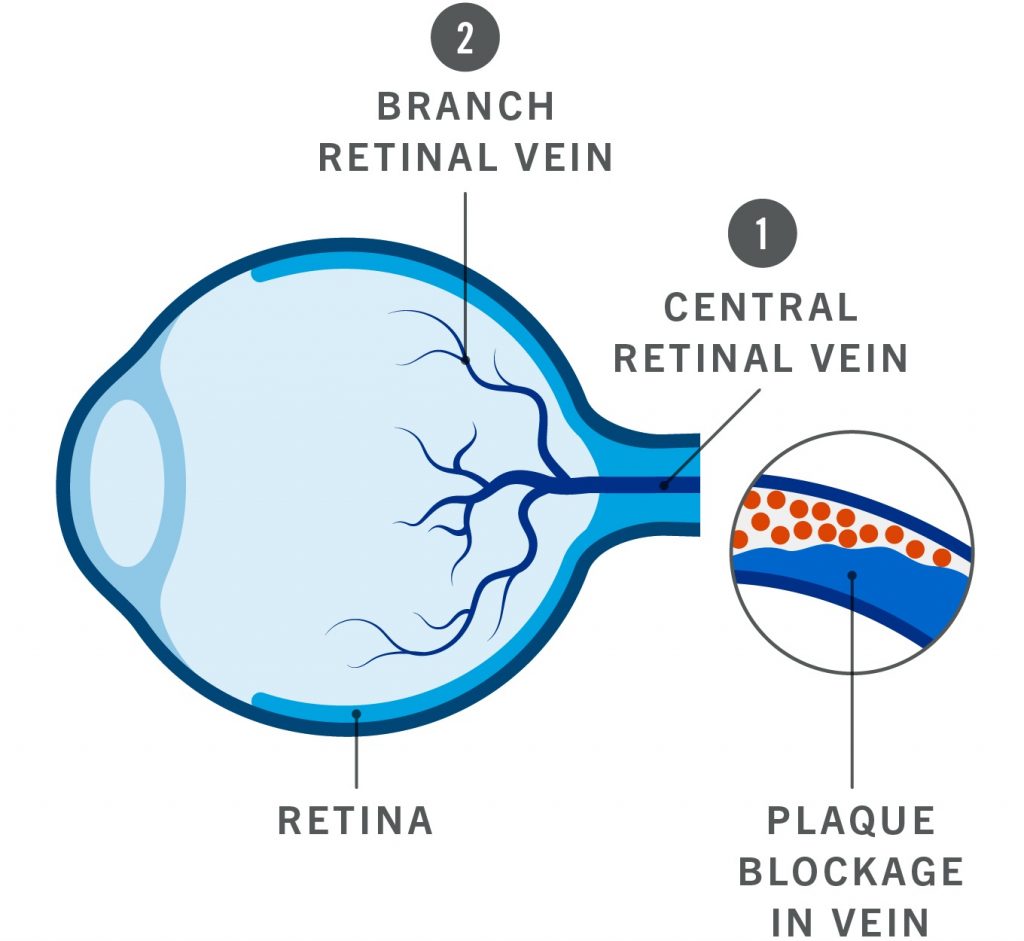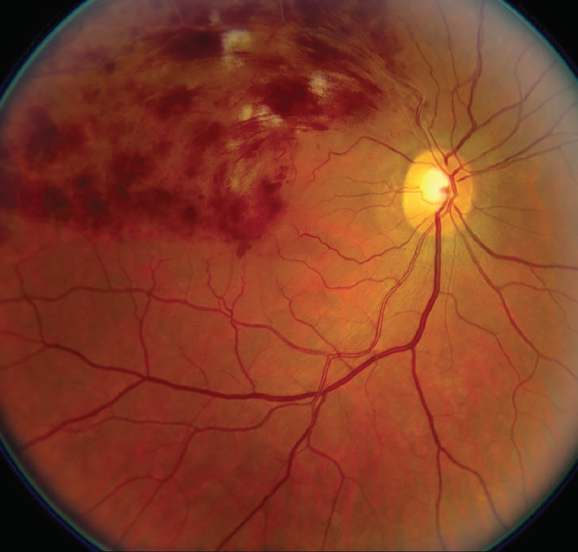Retinal Vein Occlusion

Retinal Vein Occlusion
Retinal Vein Occlusion (RVO) refers to the obstruction of a retinal vein, causing a decrease in vision. This condition leads to the accumulation of blood, resulting in retinal hemorrhages, and fluid buildup known as macular edema within the retina, ultimately leading to a reduction in visual acuity (the sharpness of vision).
RVO manifests in two primary forms:
- Central Retinal Vein Occlusion (CRVO)
- Branch Retinal Vein Occlusion (BRVO)
What is Retinal Vein Occlusion?
Causes and Risk Factors
Retinal Vein Occlusion (RVO) is primarily caused by a blockage or obstruction of the retinal veins, which can lead to impaired blood flow and various risk factors. The causes and risk factors for RVO include:
- Aging: RVO is more common in individuals over the age of 50, with advancing age increasing the risk.
- Systemic Diseases: Underlying systemic conditions play a significant role, such as hypertension (high blood pressure) and diabetes. These conditions can damage blood vessels, making them more prone to clotting.
- Glaucoma: Individuals with glaucoma are at an elevated risk, as increased intraocular pressure can lead to compression of retinal veins.
- Arteriosclerosis: The hardening and narrowing of arteries (arteriosclerosis) can affect adjacent veins and contribute to RVO.
- Vascular Diseases: Conditions like atherosclerosis and other vascular diseases can increase the risk.
- Blood Disorders: Blood disorders such as hypercoagulable states (increased tendency for blood to clot) may lead to RVO.
- Family History: A family history of retinal vein occlusion may elevate an individual’s risk.
- Smoking: Smoking is a modifiable risk factor that increases the likelihood of RVO.
- High Cholesterol: Elevated cholesterol levels can affect blood vessel health and increase the risk.
- Obesity: Being overweight or obese is associated with an increased risk of RVO.
- Ocular Conditions: Ocular factors like glaucoma, myopia (nearsightedness), and previous cataract surgery can contribute to RVO risk.
It’s essential for individuals with one or more of these risk factors to undergo regular eye exams and manage underlying systemic conditions to reduce the likelihood of developing retinal vein occlusion. Early detection and management can help prevent vision loss associated with RVO.
Symptoms of Retinal Vein Occlusion
The symptoms of RVO can vary, but common indicators include:
- Sudden, painless vision loss
- Blurred or distorted central vision
- Dark spots or floaters in the visual field
- Reduced color perception
- Difficulty reading or recognizing faces
- Prevention and Management
Preventing RVO involves controlling underlying health issues like high blood pressure and diabetes, maintaining a healthy lifestyle, and regular eye exams. Early diagnosis and intervention are key to managing this condition effectively.
Symptoms of Retinal Vein Occlusion

Diagnosis And Treatment
Retinal Vein Occlusion is diagnosed clinically with a dilated eye examination. Additional imaging such as fluorescein angiography and ocular coherence tomography (OCT) may be needed to confirm the diagnosis and monitor the progression of the disease.
Treatment of Retinal Vein Occlusion includes:
Ocular treatment:
- Observation if only a small vein is involved and does not affect the macula (central part of the vision).
- Intravitreal injections of either anti-vascular endothelial growth factor (anti-VEGF) agents or steroid injection to treat the macular edema.
- Laser photocoagulation may be administered to the peripheral ischemic retina.
Systemic treatment:
- Management of systemic factors (close control of blood pressure and blood sugar levels).
